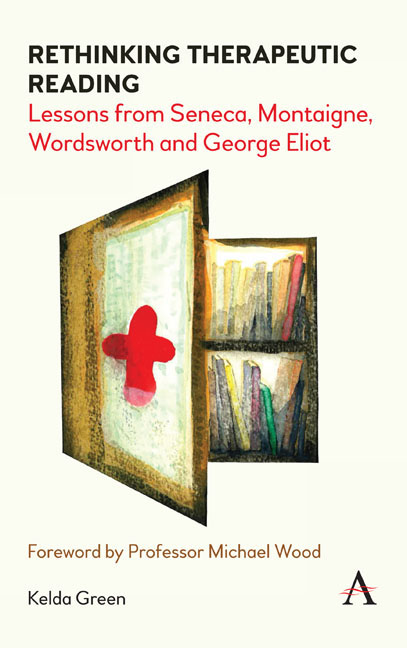1 - Senecan Tragedy and Stoic Philosophy
Published online by Cambridge University Press: 16 July 2020
Summary
In Philosophy for Life and Other Dangerous Situations, Jules Evans traces the origins of modern psychological therapies, including Cognitive Behavioural Therapy (CBT), back to their roots in the ancient philosophy of Stoicism, proposing that ancient philosophy lies at the heart of Western psychotherapy. As part of his research, Evans interviewed two of the founders of CBT, Albert Ellis and Aaron Beck; of Ellis he writes:
Albert Ellis told me […] that he had been particularly impressed by a saying of the Stoic philosopher Epictetus: ‘Men are disturbed not by things, but by their opinions about them’. This sentence inspired Ellis’s ‘ABC’ model of the emotions, which is at the heart of CBT: we experience an event (A), then interpret it (B), and then feel an emotional response in line with our interpretation (C). Ellis, following the Stoics, suggested that we change our emotions by changing our thoughts or opinions about events.
The belief that ‘we change our emotions by changing our thoughts or opinions about events’ is fundamental to CBT and it is an idea of self-control that comes directly from Stoic philosophy. The most extensive surviving evidence that we have of ancient Stoic philosophy is provided by Lucius Annaeus Seneca, the Roman philosopher (4 BC– AD 65) described by Jules Evans as the author of ‘one of the first works of anger management in Western culture’.Within the 124 surviving philosophical letters in which many of the general principles of Stoicism are set out, Seneca outlines how by changing our thoughts or opinions about events, we can transform our emotions: ‘It is according to opinion that we suffer. A man is as wretched as he has convinced himself that he is.’
In the 40 years since CBT was first developed by Ellis and Beck, its popularity and prevalence has dramatically increased. Bestselling CBT self-help books such as Mind over Mood have translated Stoic philosophy into practical manuals for modern living, and today CBT is the most commonly prescribed evidence-based psychological therapy in the United Kingdom. Between 2016 and 2017, 31 per cent of the 567,000 programmes that were completed under the government's ‘Increasing Access to Psychological Therapies Scheme’ (IAPT) were in CBT, while a similar number of guided self-help programmes were completed – a low-intensity therapy which is based on the principles of CBT.
- Type
- Chapter
- Information
- Rethinking Therapeutic ReadingLessons from Seneca, Montaigne, Wordsworth and George Eliot, pp. 9 - 26Publisher: Anthem PressPrint publication year: 2020



